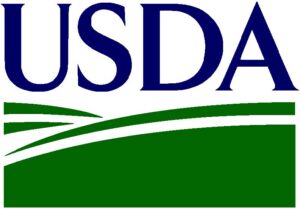Women farmers reported significantly less confidence in their ability to make a living farming than their male counterparts
By Melissa Pasanen & Beth Holtzman

Meredith Niles, UVM College of Agriculture and Life Sciences
A recent UVM study on the impacts of regulation and agricultural policy on farmers revealed that farmers find regulations increasingly complex, costly and challenging to navigate, according to the study’s author, Dr. Meredith Niles, assistant professor in UVM’s College of Agriculture and Life Sciences.
“Nevertheless, more than 80 percent of respondents still said they would be farming in the near future,” Niles says.
However, the study found that women farmers had much less confidence in their ability to make a living than their male counterparts, Niles says, despite the fact that that men and women had no statistically significant differences in whether they identified as full-time farmers or not (men 69% fulltime, women 67% fulltime). Across the US, farms with a woman principal operator tend be smaller — in both acres and gross sales — than those operated by men.
Women who participated in Niles’ study were also more likely to disagree with the statement, “government regulations are friendly towards farmers,” which Niles suggests could be related to the study’s findings that women were also less likely to perceive the cost of regulations as reasonable. “Taken together, concerns about economic viability and ability to make a living could be affecting how women farmers see government regulations,” Niles says.
In the “Farmer Perspectives of Government Regulations: Benefits, Challenges and Opportunities” project, Niles conducted 15 in-depth interviews with Vermont farmers and surveyed an additional 73 farmers. Seventy percent of respondents farmed in Vermont while the remaining came from other Northeastern states.
The survey results suggest that farmers feel they are facing increasing regulation regarding every aspect of their business, from environment to labor to food safety. They perceive that the complexity of regulation ratcheting up and that there is an increase in number of agencies involved at state, regional and federal levels.
Other findings from the study include:
- 84% of farmers reported an increase in regulations.
- 83% feel there has been increased regulatory complexity.
- While 45% said farm visits/audits had increased, 55% did not.

Source: Niles, M., Farmer “Perspectives of Government Regulations: Benefits, Challenges and Opportunities,” retrieved from https://docs.wixstatic.com/ugd/64f510_876da5aced994329a359ecc5b4247577.pdf
Farmers have similar perspectives on state and federal regulations: the majority feel confident in their knowledge of how to comply, but concerned about predictability of the regulatory environment and costs of compliance.
- While around 60% (58% for state/61% for federal) said they felt confident with compliance, only 22% (same for state and federal) felt compliance costs were reasonable.
- 35% agreed at least somewhat that the state regulatory environment is steady and predictable as compared with 31% for the federal regulatory environment.
Farmers are committed to their work but concerned about their longer-term ability to do that work in context of the financial and regulatory realities.
- Farmers intend to keep farming (83%), even though they do not feel they can make a living wage doing so (70%).
- Farmers believe regulations are not farmer-friendly (82%), but just over half believe farmers are involved and consulted during the regulatory process.
Many farmers recognize the value of regulations and offered suggestions for challenges and opportunities.
- About half believe regulations are important for achieving society’s goals, with benefits to the environment, food and worker safety, and improved consumer confidence in the food system. For example, one Vermont farmer said, “Regulations have encouraged us to be better stewards of the land and apply our manure in a responsible way.”
- Challenges identified included cost of compliance, keeping up with knowledge of new regulations, and disconnect between policymakers and farmers.
- Opportunities included simplified regulations, more chances for farmer input in the process, science-based policies, and communication, including how to find resources to assist with compliance.






